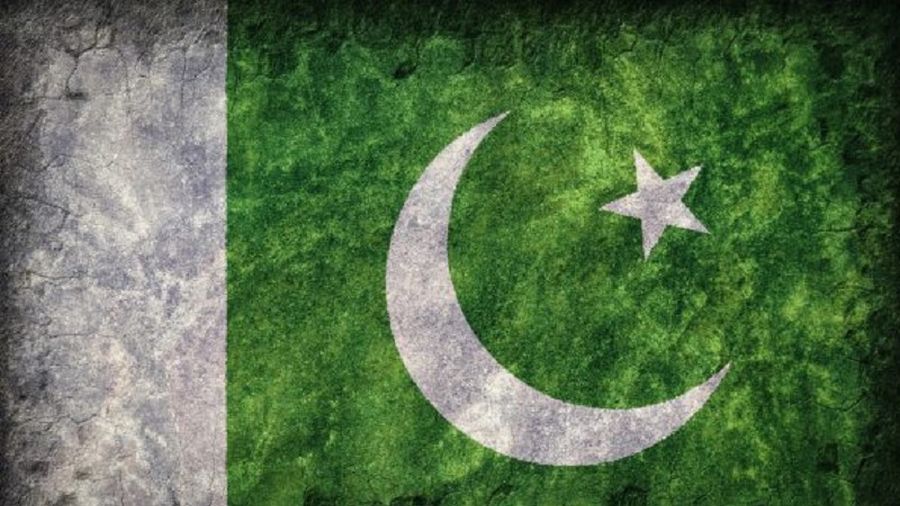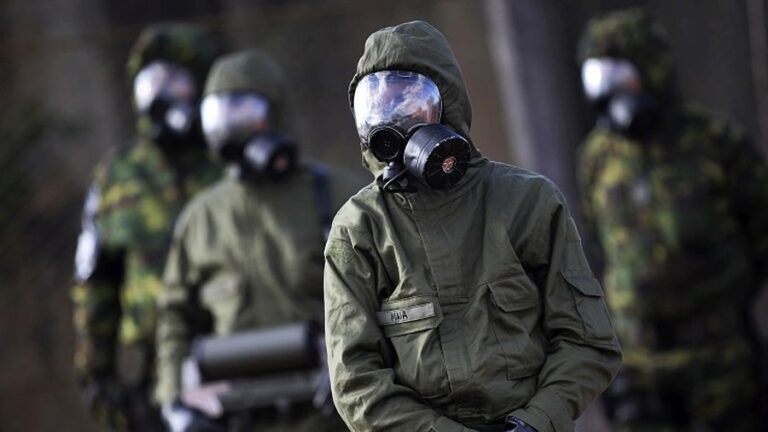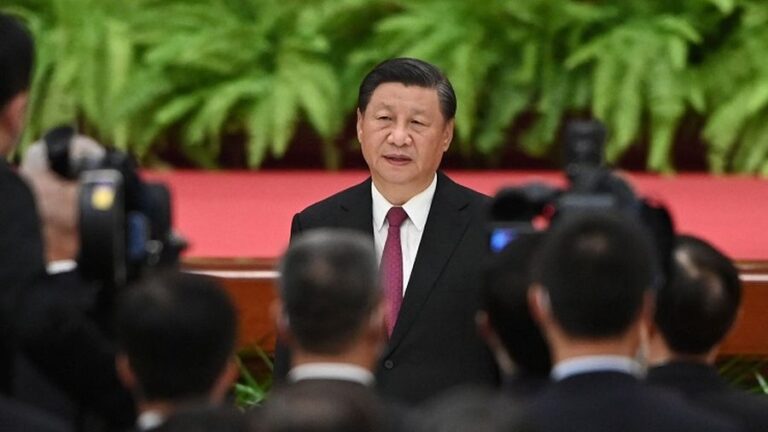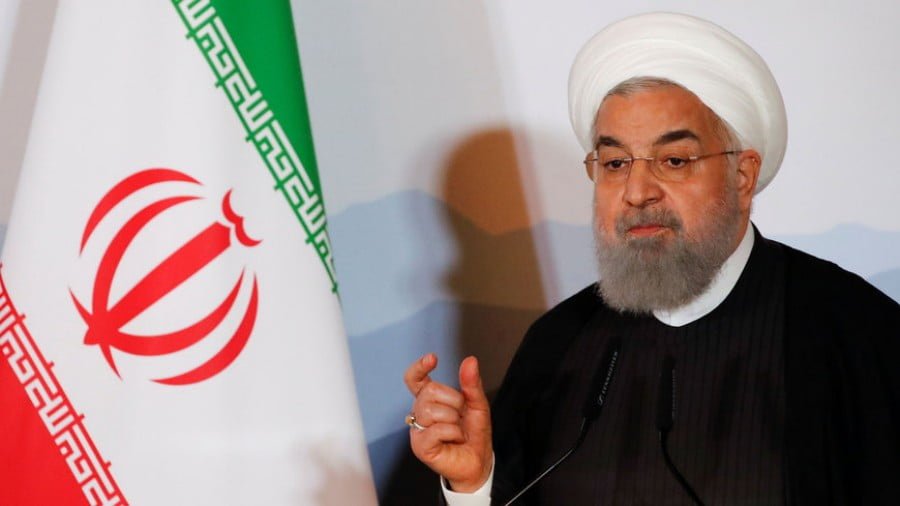Speculating on the Existence of Two Distinct Schools of Thought in Pakistan’s Establishment
Recent political developments inside Pakistan very strongly suggest the existence of two distinct schools of thought within The Establishment: pro-American and multipolar. Should this model of analysis be accurate, which can’t be known for sure since it’s speculation (despite being based upon educated observations and associated arguments), then it can be concluded that they probably agree on most issues but importantly differ on three very significant ones: the US, China, and Russia, which are not coincidentally the world’s top three Great Powers.
The Pakistani Supreme Court just ruled that Prime Minister Imran Khan’s move to dissolve the National Assembly was illegal after Deputy Speaker Qasim Suri dismissed the opposition’s no-confidence motion against him on Sunday on the grounds that it represented foreign interference in the country’s internal affairs. Accordingly, the Supreme Court ruled that parliament will therefore reconvene and also hold their no-confidence motion against the Prime Minister on Saturday. He earlier said that he’d respect whatever their ruling might be, so since the opposition already has a majority after members of the ruling coalition defected to their side, it seems to be inevitable that he’ll be removed this weekend.
The expected fall of Prime Minister Khan’s government is unlikely to resolve the growing partisan divide within Pakistan and will probably only exacerbate it. A sizeable segment of the population trusts the incumbent authorities’ conclusion that the sequence of events initiated by the opposition was really the result of an American regime change operation against their country’s leader for the independent foreign policy that he practiced, especially with respect to the game-changing geostrategic consequences related to the rapid rapprochement with Russia that he’s overseen since entering into office in 2018. That perception might only be reinforced by the Supreme Court’s decision.
Amidst all of this, there’s plenty of speculation about the role that might have been played by Pakistan’s powerful military and intelligence agencies that are known within the country as “The Establishment”. Prime Minister Khan earlier praised their decision to publicly remain neutral unlike during some previous political crises in the country but some still suspect that elements within it had a hand in recent events, be it in his support and/or against him. The Establishment is expected to outwardly project unity in pursuit of the same national interests that this institution plays an irreplaceable role in safeguarding as recognized by all patriotic Pakistanis, but there might still be some political differences within it.
Before proceeding, it’s important to mention that all discussions about The Establishment’s speculative internal dynamics must be done with the utmost of respect for it and with the purest of intentions aimed only at better understanding everything. Nobody should talk about this with the intent of discrediting this institution, attempting to drive a wedge between those members within it who might have different outlooks on whatever it may be, or to divide the country’s civil and military leaderships, let alone pit the people against The Establishment. The purpose in sharing admittedly speculative insight into what will now follow is solely to help make sense of the recent political developments in Pakistan.
Having clarified that, it’s indeed possible that The Establishment – while remaining united in support of Pakistan’s national interests – might have eventually come to have two distinct schools of thought within it in recent years. This institution was previously presumed to be pro-American, even at times so much so that some have claimed that influential elements within it compromised on their country’s national interests in order to advance the US’. That’s precisely what Prime Minister Khan previously implied when criticizing the decision to participate in the US’ so-called “Global War On Terror” (GWOT) that ultimately ended up killing over 80,000 Pakistanis and completely crushing the country’s economy.
Whatever one’s personal views are about the consequences of The Establishment’s prior reputation for being passionately pro-American, nobody can credibly deny that description. Be that as it is, developments across the past few years since Prime Minister Khan entered office have challenged The Establishment’s pro-American reputation. These include Pakistan’s brave refusal to host American military bases following that country’s chaotic evacuation from Afghanistan last August as well as the rapid rapprochement with Russia that’s resulted in two multipolar flagship projects: PAKAFUZ and the Pakistan Stream Gas Pipeline (PSGP). None of these three examples can be described as pro-American.
They also cannot, however, be described as anti-American either since Prime Minister Khan has clarified that everything that he’s done in office was motivated by his pro-Pakistani outlook. Describing these three examples and whatever others one might consider relevant to that conversation as anti-American can only be done from the perspective of the US’ unipolar hegemonic interests and the associated view that any given country’s pro-sovereignty policies are thus against American interests. It’s implausible to believe that The Establishment would have approved of those three policies if it truly was as pro-American as its prior reputation would lead one to believe.
This objective observation very strongly suggests the existence of a different school of thought within that institution that began to exert predominant influence over policy formulation from 2018 onward. It can be described as multipolar because its adherents seemingly don’t support the US’ unipolar hegemonic model of International Relations, especially with respect to it having been employed to place their country in a position that critics have described as vassalhood in the past. Just like Prime Minister Khan who publicly represents this outlook, they aren’t anti-American but pro-Pakistani. Their policies suggest that they believe that their country should strike a balance between Great Powers.
The pro-US school of thought that The Establishment is known for embracing across the decades and which can be described as Pakistan’s foreign policy tradition presumably feels differently and might believe that their country’s national interests are best served by closely aligning with America instead of attempting to achieve equidistance between it, China, Russia, and other Great Powers as part of their state’s geostrategic balancing act over the past few years. To speculate upon their views, they might have considered that balancing act to have ultimately been counterproductive since it resulted in the US putting enormous pressure on Pakistan in multiple ways since that time.
Both schools of thought have their merit in principle but the policies that they represent aren’t being practiced (or won’t be practiced in the event that the pro-US school returns to policymaking predominance following the Prime Minister’s expected departure) in a geostrategic vacuum considering the ongoing global systemic transition that’s recently become much more unpredictable. Regardless of however one assesses the incumbent’s approach towards everything, which is nowadays enshrined in Pakistan’s newly promulgated National Security Policy (NSP), a radical course correction in this very complex international context might be counterproductive to the country’s objective national interests.
For instance, the pro-American school of thought might believe that it’s wise to step back a bit from the China-Pakistan Economic Corridor (CPEC, the flagship of Beijing’s Belt & Road Initiative) as a “goodwill gesture” towards America as a first step towards repairing their troubled relations but that might inadvertently prompt more economic uncertainty that could in turn eventually worsen domestic stability. A more radical scenario that also can’t be discounted is that those who share this worldview might consider hosting US bases, even only CIA ones (that might possibly include drones), as well as possibly scrapping the earlier two multipolar flagship projects with Russia that so incensed the US.
Since it might be considered too internationally scandalous to host conventional US bases and outright reject the PSGP, this pro-American school of The Establishment might instead agree to host secret CIA bases, indefinitely delay this Russian pipeline through various means, and reduce the scope of PAKAFUZ by de facto declining to connect the Pakistani economy with Russia’s through this route despite it opening up such a possibility upon completion. Once again, all of this is admittedly speculation but is based upon an educated understanding of the how pro-American members of The Establishment might seek to advance Pakistan’s interests as they understand them to be through their school of thought.
Having argued that two primary schools of thought nowadays exist within The Establishment though acknowledging that this is still just speculation and that it’s impossible to assess the balance of influence between them if they do indeed exist due to this institution’s traditional opacity, it’s now time to analyze how this dynamic might have influenced recent political developments in Pakistan. As Prime Minister Khan himself confirmed, The Establishment has thus far officially remained neutral though many of his supporters might still speculate that it played a role in the latest events. That might never be proven even if it happened so all that one can do is speculate about this.
With this in mind, it might have been the case that those members within The Establishment who consider themselves pro-American (even if not describing themselves as such but purely in terms of their outlook as was described) were aware that the declining unipolar hegemon preferred to discuss repairing their trouble relations with Pakistan only after Prime Minister Khan’s departure from office. Instead of considering this foreign interference in their affairs, they might have simply concluded that it’s a pragmatic approach from the US’ position considering its interests. Those who ascribe to this school of thought might also have considered the opposition’s no-confidence motion a coincidence.
After all, there were plenty of preexisting partisan problems within Pakistan prior to US Assistant Secretary of State for South & Central Asian Affairs Donald Lu threatening to carry out regime change against Prime Minister Khan like the incumbent claimed had happened. Instead of members of the opposition directly conspiring with this foreign power, they might simply have functioned as “useful idiots” by playing the role that they were expected to within this sequence of events that he allegedly threatened when reportedly predicting the no-confidence motion a day before it was tabled. Objective observers knew that the opposition wanted him gone for their own reasons so it isn’t too surprising.
Nevertheless, Prime Minister Khan and Foreign Minister Shah Mahmood Qureshi are unlikely to have simply fabricated the contents of the letter they claimed to have received warning about this regime change plot. They seem sincerely convinced of its authenticity and their patriotism shouldn’t be doubted by anyone. Even if everything was exactly as they claimed, that also doesn’t mean that those pro-American elements within The Establishment who might have been aware of the US’ preferences and possibly even speculated upon its connection (whether direct or indirect) to the latest sequence of events aren’t patriots either. They simply have a different understanding of this concept.
The fact that The Establishment didn’t directly intervene in support of either Prime Minister Khan or the opposition can suggest several different things. First, considering the speculative existence of the two schools of thought discussed in this analysis which presumably have different outlooks on the latest political developments and their alleged connection to the US’ reported regime change plot against their country, they might have both concluded that it’s in Pakistan’s objective national interests for this institution to remain on the sidelines. Public interference in support of one side or the other might have been considered counterproductive to the cause of national unity and thus national security.
Second, some might speculate that those affiliated with the pro-American school of thought might have had an unclear hand in the opposition’s no-confidence motion (with or without coordinating with the US); their multipolar counterparts might have had a hand in the Deputy Speaker’s dismissal of that same motion that was just ruled to have been unconstitutional; and/or that the pro-American element influenced the Supreme Court’s decision. Again, none of this can be known for sure and it might just purely be speculation, though there’s also no denying that certain segments of the population believe one, some, or all of these interpretations of events.
The third suggestion that can be made from the analysis thus far (presuming that it’s accurate, which once again, can’t be known for sure by virtue of The Establishment’s opacity and this piece’s admittedly speculative but sincerely well-intended purpose) is that the dynamics between these two schools of thought might once again be changing and could result in the pro-American one returning to policymaking predominance upon the expected fall of Prime Minister Khan’s government. Should that happen, then it’s of course unclear to what extent they might change Pakistan’s foreign policy, especially with respect to the issues of hosting US bases and completing projects with Russia.
Without ever being able to know the exact makeup of The Establishment in terms of which members ascribe to which school of thought, nobody can confidently predict what’ll follow in that scenario. Nevertheless, presuming that there do indeed exist two distinct schools of thought like was argued and that the multipolar one had succeeded up until now in revolutionizing Pakistan’s foreign policy and grand strategy more broadly, then the pro-American one would essentially have to carry out radical personnel changes within the Ministry of Foreign Affairs and other institutions in order to advance its speculatively envisioned policies that might in turn radically change the country’s course thus far.
Like was also argued earlier in this analysis, doing so could be counterproductive for Pakistan in the very complex and difficult context of the ongoing global systemic transition since the pro-American school of thought might believe it to be in their country’s best interests to alter its relations with China and Russia in order to please the US and thus set those two on the path to a rapprochement. If these elements don’t unilaterally advance their vision but instead calmly discuss it with their multipolar peers prior to possibly implementing it, then The Establishment as a whole might reasonably conclude that it’s too risky to make radical changes right not though some minor ones might still happen.
That would be the most balanced outcome and much better than the pro-American school pushing through its presumably radical vision and potentially coming up against some degree of resistance from their multipolar peers who might try to slow down its implementation for the same patriotic reasons that their counterparts are seeking to advance their potential agenda. Once again, to be absolutely clear so as not to be misunderstood by anyone, these two schools of thought are patriotic in their own way since neither would consciously work against the same national interests that they’ve devoted their lives to defending, it’s just that they aim to advance these same interests in presumably very different ways.
To wrap everything up, recent political developments inside Pakistan very strongly suggest the existence of two distinct schools of thought within The Establishment: pro-American and multipolar. Should this model of analysis be accurate, which can’t be known for sure since it’s speculation (despite being based upon educated observations and associated arguments), then it can be concluded that they probably agree on most issues but importantly differ on three very significant ones: the US, China, and Russia, which are not coincidentally the world’s top three Great Powers. If policymaking dynamics between them are presently shifting like is suspected, then it might lead to radical changes in the coming future.








6 Comments